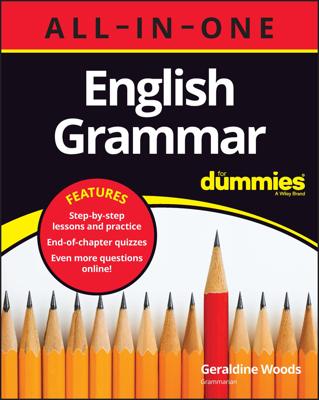In grammar, the new, improved blend of two parts of speech is a called a verbal. Verbals are extremely useful hybrids. Verbals come in three forms: gerunds, infinitives, and participles.
What's a gerund verbal, anyway?
Gerunds are a combination of a noun and a verb. Gerunds inherit these characteristics from verbs:
They end in -ing and look like verbs — swimming, dripping, being, and so on.
They may be described by words or phrases that usually describe verbs — swimming swiftly, dripping noisily, being in the moment, and so on.
The type of clause that usually describes verbs may also describe gerunds — swimming after the race ends, dripping when the cap is not tightened, and being wherever you should be.
They may have objects or subject complements — swimming laps, dripping drops of gooey glop, and being president.
Gerunds inherit only two characteristics from nouns:
They act as nouns in the sentence. Therefore, gerunds may be subjects, objects, and anything else that a noun can be.
Adjectives may also describe gerunds — my swimming, noisy dripping, and so on.
In these examples gerund and all the words associated with it (the gerund phrase, in grammarspeak) are italicized:
Swimming the Atlantic Ocean was not exactly what Ella had in mind when she married Larry.
Anna, a neat person in every possible way, hates my dripping ice cream on the rug. (
How about infinitives in sentences?
Infinitives inherit several important characteristics from verbs:
Infinitives look like verbs, with the word to tacked on in front — to dance, to dream, to be, and so on.
Words or phrases that usually describe verbs may also describe infinitives — to dance divinely, to dream daily, to be in the kitchen, and so on.
Similarly, the type of clause that usually describes verbs may also describe infinitives — to dance until the cows come home, to dream when your heart is breaking, to be wherever you want to be, and so on.
Infinitives may have objects or subject complements — to dance a jig, to dream an impossible dream, to be silly, and so on.
The infinitive inherits its job in the sentence from nouns:
Most infinitives act as subjects, objects, or subject complements.
A few infinitives describe nouns.
A few infinitives describe verbs.
Read these examples of infinitives in their natural habitat, the sentence:
To dance on Broadway is Lola’s lifelong dream. (to dance on Broadway = subject of the verb is)
During cabinet meetings, Larry likes to dream with his eyes open. (to dream with his eyes open = object of the verb likes)
When is a verbal a participle?
Participles are actually parts of verbs. In some sentences participles act as part of the verb, but in those situations, they’re not called verbals. When participles are verbals, they, like the other two verbals, inherit some important traits from their mom the verb:
Participles look like verb parts, though they may have several different forms. Some end with -ing, some with -ed, and some with other letters. Also, they may have helping verbs. Driven, coping, elevated, having crossed, and gone are a few examples of participles.
Words or phrases that usually describe verbs may also describe participles — driven home, coping bravely, elevated to the position of Emperor, having crossed illegally, gone with the wind, and so on).
Similarly, the type of clause that usually describes verbs may also describe participles — driven although he has two perfectly good feet, coping bravely when tragedy strikes, gone after the sun sets, and so on.
Participles may have objects or subject — elevated Ella to the position of Empress, having crossed the road, and so on.
Participles describe nouns and pronouns and may appear in several different spots in the sentence:
They may precede the noun or pronoun that they describe: tired feet, sneezing dwarves, burped baby.
They may follow a linking verb, in which case they describe the subject:
Ella is exhausted. (The participle exhausted follows the linking verb is and describes Ella.)
They may follow the noun or pronoun that they describe. In this position, participles often include descriptive words or objects. The participles and the words associated with them —the participial phrases — are italicized here:
Someone, having angered the herd of cattle, is running for the fence at the speed of light. (Having angered the herd of cattle describes someone.)
Participles may begin the sentence, in which case they must describe the subject of the sentence:
Poked in the tummy, the doll immediately said, “Watch it, Buster!” (Poked in the tummy describes doll.)

